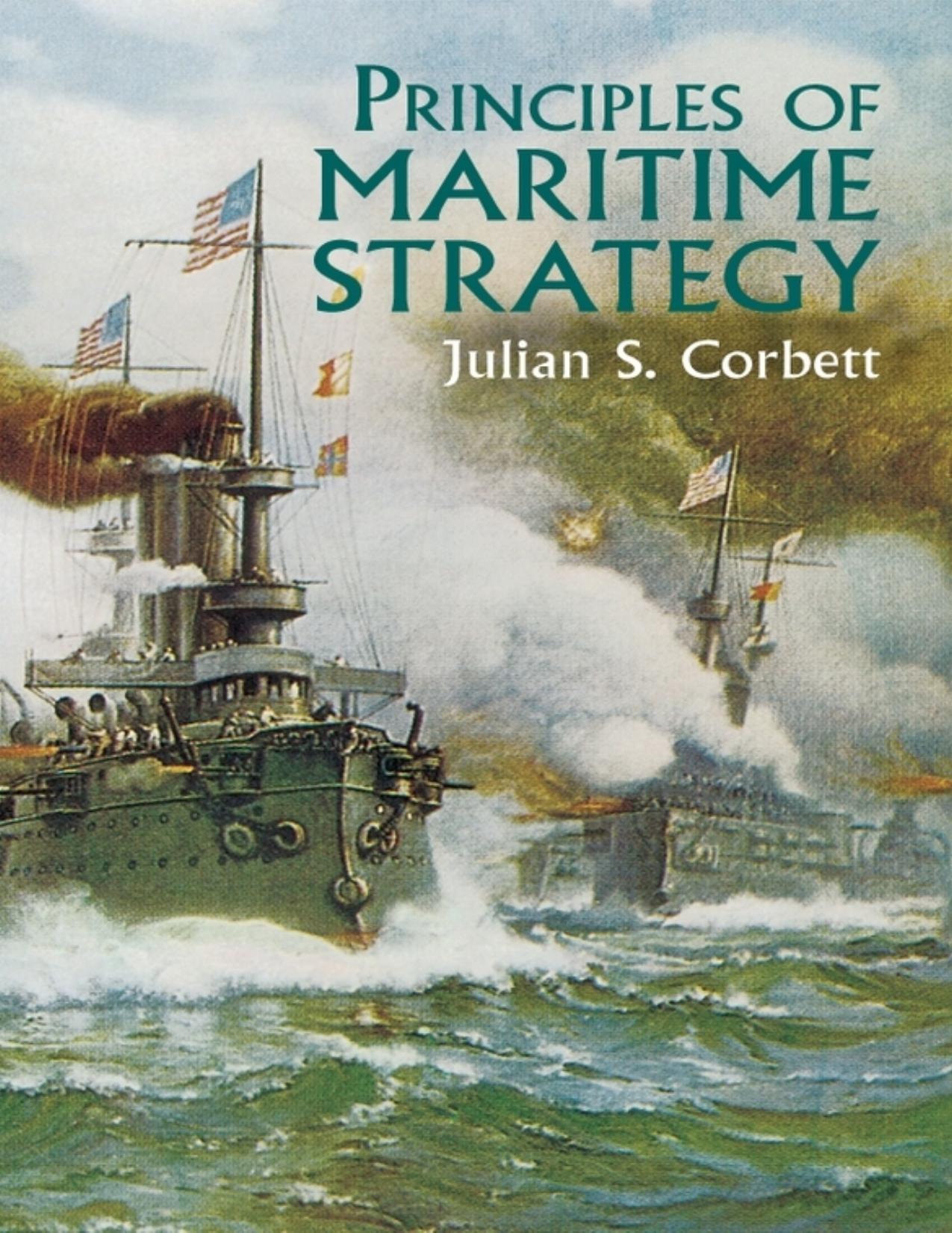Principles of Maritime Strategy by Julian S. Corbett

Author:Julian S. Corbett
Language: eng
Format: epub, pdf
ISBN: 9780486141336
Publisher: INscribe Digital
Published: 2012-10-12T04:00:00+00:00
II
BLOCKADE
Under the termblockade we include operations which vary widely in character and in strategical intention. In the first place, blockade may be either naval or commercial. By naval blockade we seek either to prevent an enemy’s armed force leaving port, or to make certain it shall be brought to action before it can carry out the ulterior purpose for which it puts to sea. That armed force may be purely naval, or it may consist wholly or in part of a military expedition. If it be purely naval, then our blockade is a method of securing command. If it be purely military, it, is a method of exercising command, and as such will be dealt with when we come to consider defence against invasion. But in so far as military expeditions are normally accompanied by a naval escort, operations to prevent their sailing are not purely concerned with the exercise of command. Naval blockade, therefore, may be regarded for practical purposes as a method of securing command and as a function of battle-squadrons. Commercial blockade, on the other hand, is essentially a method of exercising command, and is mainly an affair of cruisers. Its immediate object is to stop the flow of the enemy’s sea-borne trade, whether carried in his own or neutral bottoms, by denying him the use of trade communications.
From the point of view of the conduct of war, therefore, we have two well-defined categories of blockade, naval and commercial. But our classification must go further; for naval blockade itself is equally varied in intention, and must be subdivided. Strictly speaking, the term implies a desire to close the blockaded port and to prevent the enemy putting to sea. But this was not always the intention. As often as not our wish was that he should put to sea that we might bring him to action, and in order to do this, before he could effect his purpose, we had to watch the port with a fleet more or less closely. For this operation there was no special name. Widely as it differed in object from the other, it was also usually called blockade, and Nelson’s protest against the consequent confusion of thought is well known. “ It is not my intention,” he said, “ to close-watch Toulon ” ; and again, “ My system is the very contrary of blockading. Every opportunity has been offered the enemy to put to sea.” It is desirable, therefore, to adopt terms to distinguish the two forms. “ Close ” and “ open ” express the antithesis suggested by Nelson’s letter, and the two terms serve well enough to mark the characteristic feature of each operation. Close blockade, it is true, as formerly conceived, is generally regarded as no longer practicable; but the antithetical ideas, which the two forms of blockade connote, can never be eliminated from strategical consideration. It must always be with the relations of these two forms, whatever shape they may take in future, that the strategy of naval blockade is chiefly concerned.
Download
Principles of Maritime Strategy by Julian S. Corbett.pdf
This site does not store any files on its server. We only index and link to content provided by other sites. Please contact the content providers to delete copyright contents if any and email us, we'll remove relevant links or contents immediately.
| Africa | Americas |
| Arctic & Antarctica | Asia |
| Australia & Oceania | Europe |
| Middle East | Russia |
| United States | World |
| Ancient Civilizations | Military |
| Historical Study & Educational Resources |
The Radium Girls by Kate Moore(12027)
100 Deadly Skills by Clint Emerson(4924)
Rise and Kill First by Ronen Bergman(4788)
The Templars by Dan Jones(4689)
The Doomsday Machine by Daniel Ellsberg(4490)
The Rape of Nanking by Iris Chang(4211)
Killing England by Bill O'Reilly(4001)
Stalin by Stephen Kotkin(3965)
Hitler in Los Angeles by Steven J. Ross(3946)
12 Strong by Doug Stanton(3548)
Hitler's Monsters by Eric Kurlander(3341)
Blood and Sand by Alex Von Tunzelmann(3203)
The Code Book by Simon Singh(3189)
Darkest Hour by Anthony McCarten(3129)
The Art of War Visualized by Jessica Hagy(3007)
Hitler's Flying Saucers: A Guide to German Flying Discs of the Second World War by Stevens Henry(2754)
Babylon's Ark by Lawrence Anthony(2676)
The Second World Wars by Victor Davis Hanson(2524)
Tobruk by Peter Fitzsimons(2516)
